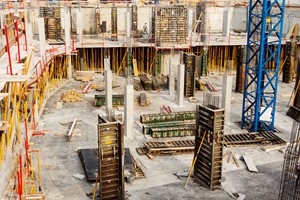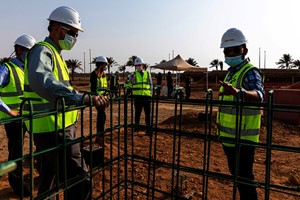The revival of longstanding plans to construct a rail tunnel beneath the Strait of Gibraltar, connecting Spain with Morocco, has garnered notable attention. As reported by the Spanish news outlet Vozpópuli, the Spanish government has engaged the services of the state-owned engineering consultancy, Ineco, to undertake the task of updating the feasibility study and cost estimates for this ambitious undersea project.
Ineco has been tasked with revising a preliminary outline design originating from 2007, initially developed by fellow Spanish engineering consultancy, Typsa, in collaboration with Ingema of Morocco, Lombardi of Switzerland, and Geodata of Italy. This endeavor entails a comprehensive evaluation encompassing alternative alignments, safety considerations, and overall viability. Preliminary estimations project the tunnel's cost to fall within the range of €5 billion to €10 billion, with financial support anticipated from European and African lending institutions.
The most direct route between Spain and Morocco spans 14 kilometers, yet presents formidable construction challenges due to the significant depth of the sea, reaching approximately 1000 meters at that point. In response, Ineco is exploring alternative alignments, extending approximately 28 kilometers but with a more manageable depth of less than 300 meters.
Outlined in the current plan is the construction of a single-bore tunnel, with provision for a potential second parallel bore in the future, catering to both passenger and freight trains. Noteworthy consultations have taken place with the US Geological Survey in Europe and tunnel boring machine (TBM) manufacturer, Herrenknecht, to enrich the project's technical insights.
The genesis of this endeavor dates back to 1979 when Spain and Morocco first inked an agreement to embark on the construction of this pivotal infrastructure. Notable progress has been made on the Spanish front, spearheaded by the state-owned special-purpose entity, Secegsa, which has been allocated €2.3 million from the European Union's Recovery, Transformation, and Resilience Plan.
Evidenced by the recent meeting between Spain's Minister for Transport and Sustainable Mobility, Mr. Óscar Puente, and Morocco's Minister of Infrastructure and Water, Mr. Nizar Baraka, held in Rabat on March 4, the strategic significance of the new rail tunnel was underscored. Minister Puente further emphasized this strategic imperative during the engagement.
Moreover, Minister Puente's discussions extended to Morocco's Minister of Transport and Logistics, Mr. Mohammed Abdeljalil, wherein it was announced that Ineco had entered into a memorandum of understanding (MoU) with its Moroccan counterpart, CID. This collaborative initiative seeks to harness the collective expertise of both consultancies in advancing rail and urban transport projects across the African continent.
In elucidating Spain's commitment to fostering bilateral cooperation, Minister Puente remarked, "Morocco is in the process of developing a new rail network. It is the first country in Africa which introduced high-speed rail, and it is now expanding that network. Spain hopes to play an important part in that program. We want to pass on to Morocco our knowledge and experience in rail."













